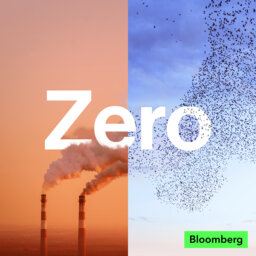Best of: 2C or not 2C? That is the question. Climate summits as Shakespeare would see them.
In fractured times, what does it take to reach agreement? That’s the question writers Joe Murphy and Joe Robertson set out to explore in a play about the drama of climate negotiations. Kyoto, which ran at the Royal Shakespeare Company’s Swan Theater in Stratford-upon-Avon this summer, tells the story of the 1997 Kyoto Summit as seen through the eyes of Don Pearlman, a notorious fossil fuel lobbyist and chain-smoking lawyer dubbed “the high priest of the Carbon Club” by der Speigel. Actor Stephen Kunken, who plays Pearlman, tells Akshat Rathi why he was drawn to the character, and what Kyoto can teach us about how agreement is achieved. This episode first ran in July 2024.
Explore further:
- Past episode with Al Gore about breaking the petrostates stranglehold on climate progress
- Past episode about climate change storytelling with Kim Stanley Robinson, author of Ministry for the Future
- Past episode with Extrapolations writer and executive producer Dorothy Fortenberry about the growing demand for climate stories
Zero is a production of Bloomberg Green. Our producer is Mythili Rao. Special thanks this week to Kira Bindrim, Alicia Clanton, Anna Mazarakis, and Jessica Beck. Thoughts or suggestions? Email us at zeropod@bloomberg.net. For more coverage of climate change and solutions, visit https://www.bloomberg.com/green.
In 1 playlist(s)
Zero
Zero is about the tactics and technologies taking us to a world of zero emissions. Each week Bloombe…Social links
Follow podcast
Recent clips

Electricity is now holding back growth across the global economy
39:13

George Saunders goes inside the mind of a climate denier: Imagine series
43:22

Electrification – not decarbonization – is the climate story of 2026
40:53
 Zero
Zero